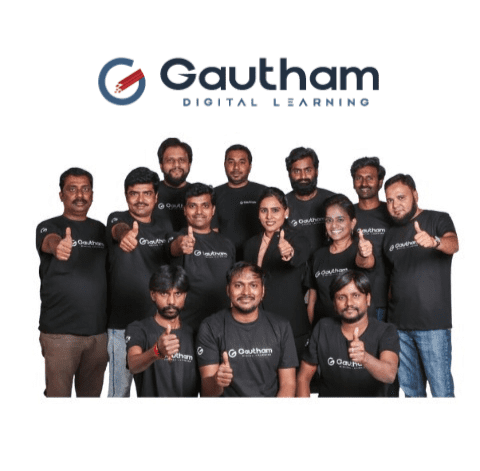Digital Marketing Course
Gautham Digital Learning offers a comprehensive digital marketing course that covers all the essential topics from basics to advanced. The course is taught by an experienced trainer and covers the latest trends in digital marketing. The course is delivered online and offline. Upon completion of the course, students will receive a certificate.

Next Batch
10 Sep 2024
Course Duration
90 Working Days
Course Fee
₹ 14,999/-
Eligibility
Any Graduate/Diploma
Digital Marketing Course Overview
Gautham Digital Learning offers a comprehensive Digital Marketing Course to provide individuals with the necessary skills to thrive in digital marketing. The course is available in both online and classroom formats, allowing learners to select their preferred learning mode. It covers essential digital marketing areas, including SEO, Google Ads, Facebook Ads, Twitter Ads, and more. Students will develop expertise in data-driven decision-making and measuring campaign performance. Enroll now to master social media marketing, content creation, and email campaigns. Join us today to build a successful career in digital marketing!

About our Trainer
Mr. Sudhakar is an experienced digital marketing trainer with over 12 years of professional experience. His expertise in the field is demonstrated by his successful track record of training over 30,000 students. In addition, he has provided valuable services to various businesses, helping them improve their online brand recognition and sales through various online platforms. His extensive knowledge of a wide range of digital marketing tools is truly commendable, and he is well-versed in their practical application.
Digital Marketing Course Curriculum
- Introduction
- What is Domain?
- How to Buy a Domain Name?
- How to Configure A Domain to a Site?
- How to Buy Hosting?
- Types of Hosting
- How to Add Domain and Hosting?
- Introduction to WordPress
- WordPress Theme setting
- WordPress plugins
- SEO for WordPress
- Blog Creation
- Widget Configuration
- WordPress Installation Process.
- Understanding the WordPress Dashboard
- Understanding the Default Settings
- Installing and customizing themes to the site.
- Creating categories, pages, and posts.
- Adding a menu to the site.
- Adding a menu to the site.
- Introduction to SEO
- Basics of SEO
- Importance of SEO
- Business analysis
- What is Search Engine Optimization?
- History of Search Engines
- Importance of SEO In Digital Marketing
- Different types of Search Engines
- How Search Engine Works?
- Algorithms and updates of Google
- What is On-page Optimization?
- URL Structure
- Meta Title
- Meta Description
- Meta Keywords
- Headings
- Anchor tags
- Canonical URL
- Content optimization
- Image Optimization
- XML Sitemap
- txt
- URL Redirections
- Google Analytics
- Google My Business
- Schema Mark-up
- What is Off-page SEO
- Difference between off-page SEO and on-page SEO
- Importance of Backlinks Link Building Techniques
- Directory Submission Sites list
- Social Bookmarking Profile page Creation
- Article Submission
- Blog posting
- Blog commenting
- Search engine submission
- Image Submission
- Video Submission
- Google Groups
- Forum Posting
- Web 2.0
- What is Keyword
- Types of keywords
- Keyword Research Techniques
- Competitor Analysis
- Fitting keywords to the project
- Keyword Research tools
- Ahref
- SEMrush
- Keyword finder
- Google Keyword planner
- What is affiliate marketing
- How is it Important in digital marketing
- How to increase ROI of business
- Using affiliate marketing
- How affiliate marketing works
- Components present in affiliate networks
- Attribution models
- How to identify publishers
- How to recruit publishers
- How to retain publishers
- What type of products are to be assigned to publishers
- How to identify merchants
- Affiliate marketing tools
- Introduction to Google Ads
- Importance of Google Ads
- Understanding the KPI
- Benefits of Google Ads
- Setting up a Google Ads account
- User account creation
- Setting up campaigns
- Types of Campaigns
- Location setting
- Language setting
- Ad rotation
- Ad Scheduling
- Keyword Research
- Keyword Match types
- Different types of Ads
- Call only Ad
- Search Ads
- Conversion tracking
- Types of conversions
- Remarketing lists
- Bidding types
- Remarketing
- Display Ads
- Lead generation ads
- Ad rank calculation
- Quality score
- Quality Score calculation
- What is Actual CPC?
- Shopping ads
- Shopping Ads campaign
- What are the shopping Ads
- Shopping Campaign Setup
- Google Merchant Centre setup
- Data feed Setup
- Data feed Properties
- Ad groups and Product groups
- Activating merchant Centre
- Integrating Merchant Center to Google Ads account
- Remarketing
- Linking Existing AdWords account with MCC
- Campaign Performance Reports
- How to Create a Manager Account
- How to link & unlink accounts
- Inviting Users to your account
- Managing Account Access Levels
- Creating Optional Login AdWords Account
- What is video marketing?
- Creating a YouTube channel
- Customizing the YouTube channel
- Creating a video marketing strategy
- Viral video examples
- Types of Video Posts
- How to create YouTube videos
- How to do YouTube SEO
- YouTube Engagement Metrics
- Increasing Subscribers
- End Screens & Cards
- YouTube creator studio
- In-depth Statistics Analysis
- What is social media marketing?
- How is it important in business?
- How can social media be integrated with the website
- Facebook Marketing
- Facebook user profile creation
- Page creation
- Edge rank algorithm
- Group creation
- Event Creation
- Facebook content strategy
- How to improve likes, shares, and comments
- How to Build a brand on Facebook
- Hashtags
- Facebook advertising
- Sponsored posts
- Sponsored Stories
- Sponsored events
- Sponsored likes
- Introduction to Email Marketing
- Benefits of Email Marketing
- Email Marketing Software’s
- Building email marketing strategy
- Building subscriber lists
- Designing Newsletters
- Types of Campaigns
- Reports and analysis
- How to use Auto responder
- How to segment your Email Lists
- What is Web Analytics?
- How does Google Analytics work?
- Why Google Analytics is needed for SEO campaigns?
- How to configure Google Analytics?
- Google Analytics plug-in configuration within WordPress
- Checking Real-time Analytics
- Looking at the Geo (location) of the overall audience.
- Users flow
- Acquisition – All Traffic – Channels
- Traffic achieved through organic search
- In-Page Analytics
- How to submit a website to the Search Console
- URL inspection
- Performance
- Index coverage
- Sitemaps
- Mobile Usability
- Links
- Security and manual actions
- Site Errors
- Website rank Analysis
- Disavow backlinks
- Introduction of Google AdSense
- What is AdSense?
- Creating an AdSense Account & Verification
- Generating Ad-code in Google AdSense
- Types of Bidding
- How to Earn Money by Using Google AdSense
- Planning a website for AdSense
- Implementing Ads on a Website
- Integration of Google AdSense with YouTube Account
- Monetization of YouTube Channel
- Top Practices of Google AdSense
- Linking Existing AdWords account with MCC
- Campaign Performance Reports
- How to Create a Manager Account
- How to link & unlink accounts
- Inviting Users to your account
- Managing Account Access Levels
- Creating Optional Login AdWords Account
- Importance of Twitter in Building Brand & Business
- Fan Engagement On Twitter
- Creation of a Twitter profile
- Writing search engine content as a bio for Twitter
- Hash tags
- How to engage with users on Twitter
- How to integrate Twitter with other social networking sites
- Case studies on Twitter
- What is LinkedIn?
- How is LinkedIn important for business?
- Role of LinkedIn in Lead Generation
- Role of LinkedIn human resource department
- Profile creation
- Company page creation
- Group creation
- User Engagement
- LinkedIn Campaigns
- LinkedIn Ads
For More Information
Digital marketing Topics
Different Modes of Training





You can attend our Service Now online classes from any part of the world, at any given time.
Learn at your own pace from the comfort of your home. All the classes will be recorded with lifetime access to it. You can watch and learn the concepts at your own schedule.
Researchers concluded that hands-on, interactive learning is 10 times more effective than reading or watching course material.
Upcoming Online Live Classes
10 Sep 2024
MON - FRI (40 DAYS)
Flexible Timings 09:00- 09:00PM (IST)
13 Oct 2024
MON - FRI (40 DAYS)
Flexible Timings 09:00- 09:00PM (IST)
17 Dec 2024
MON - FRI (40 DAYS)
Flexible Timings 09:00- 09:00PM (IST)
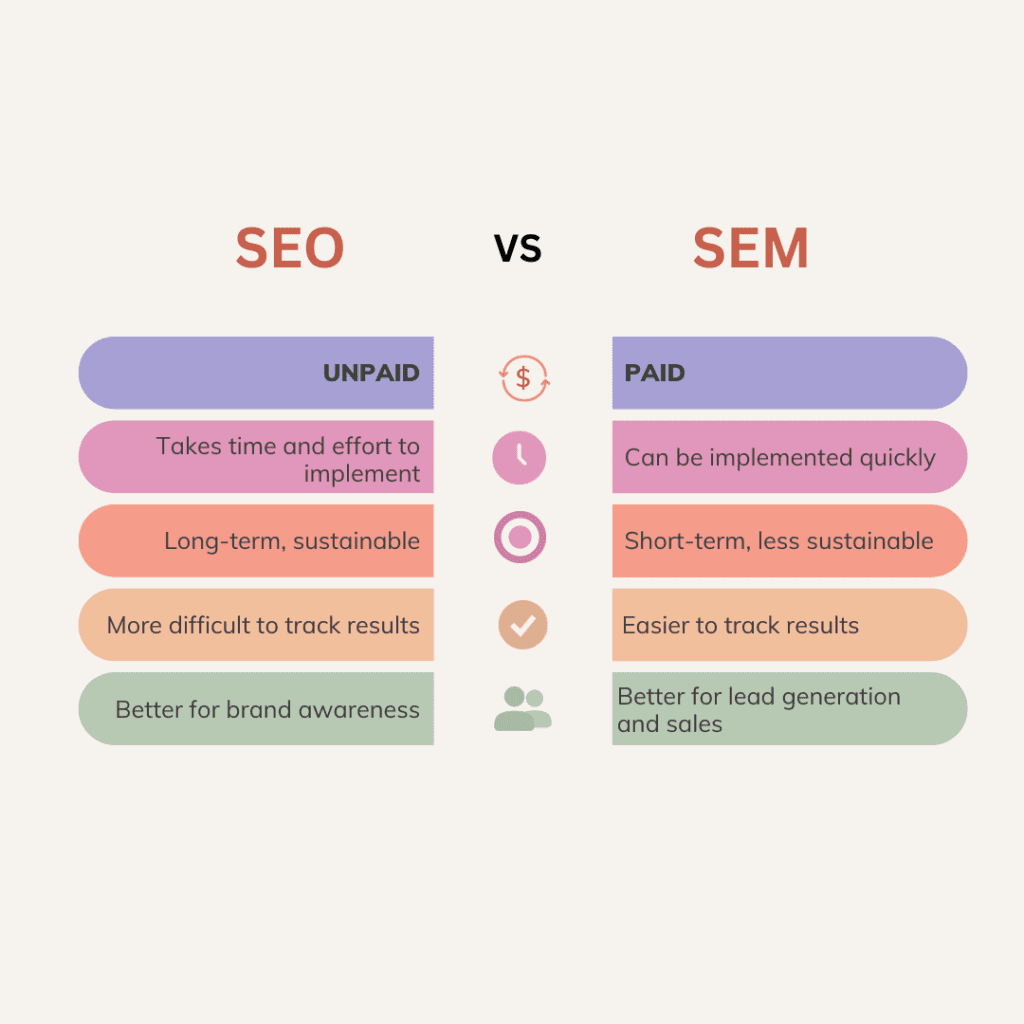
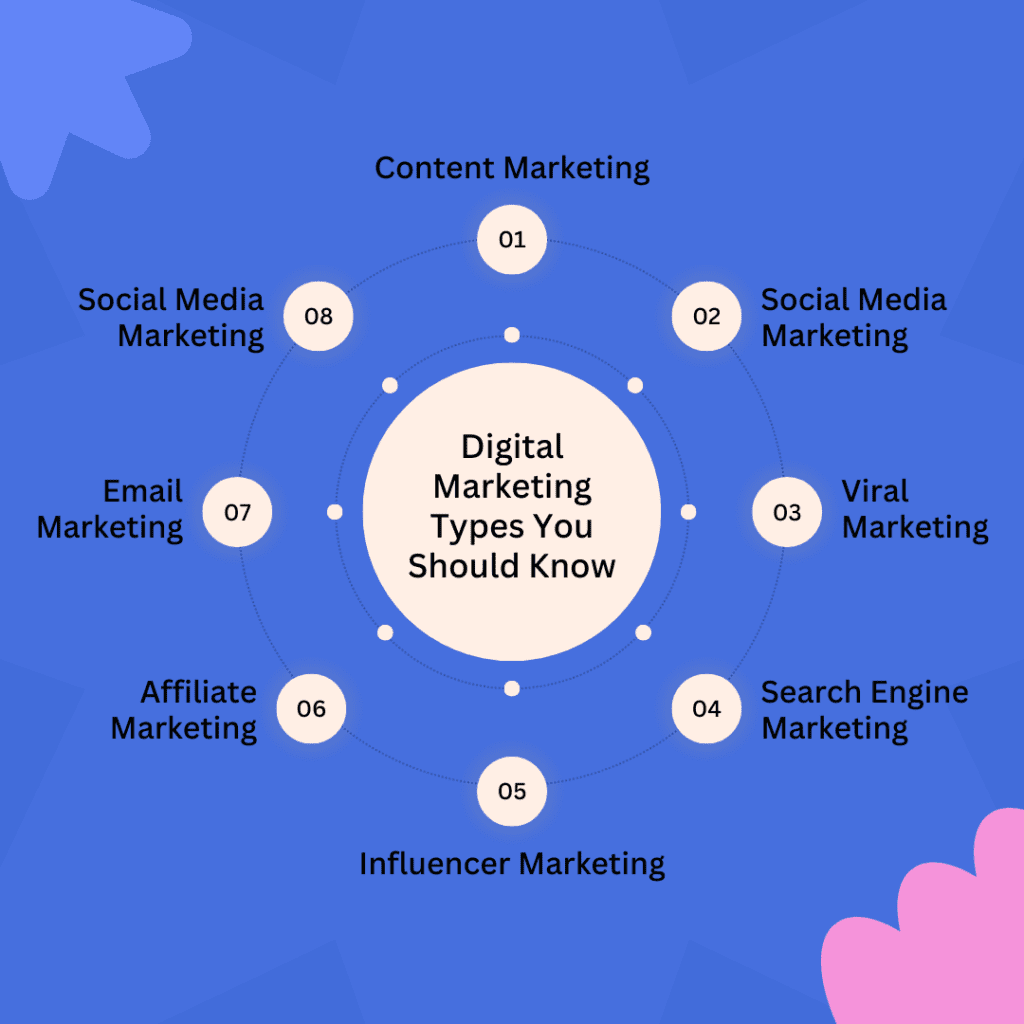
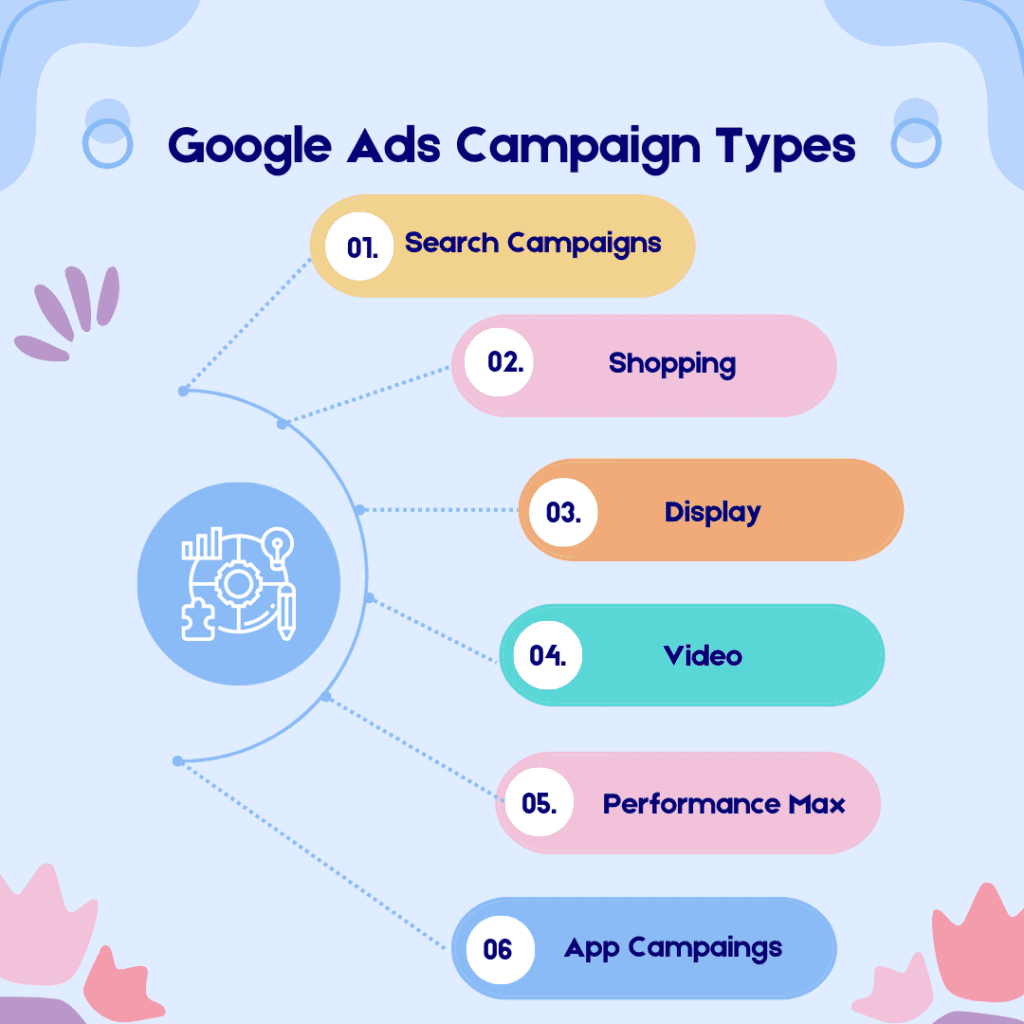
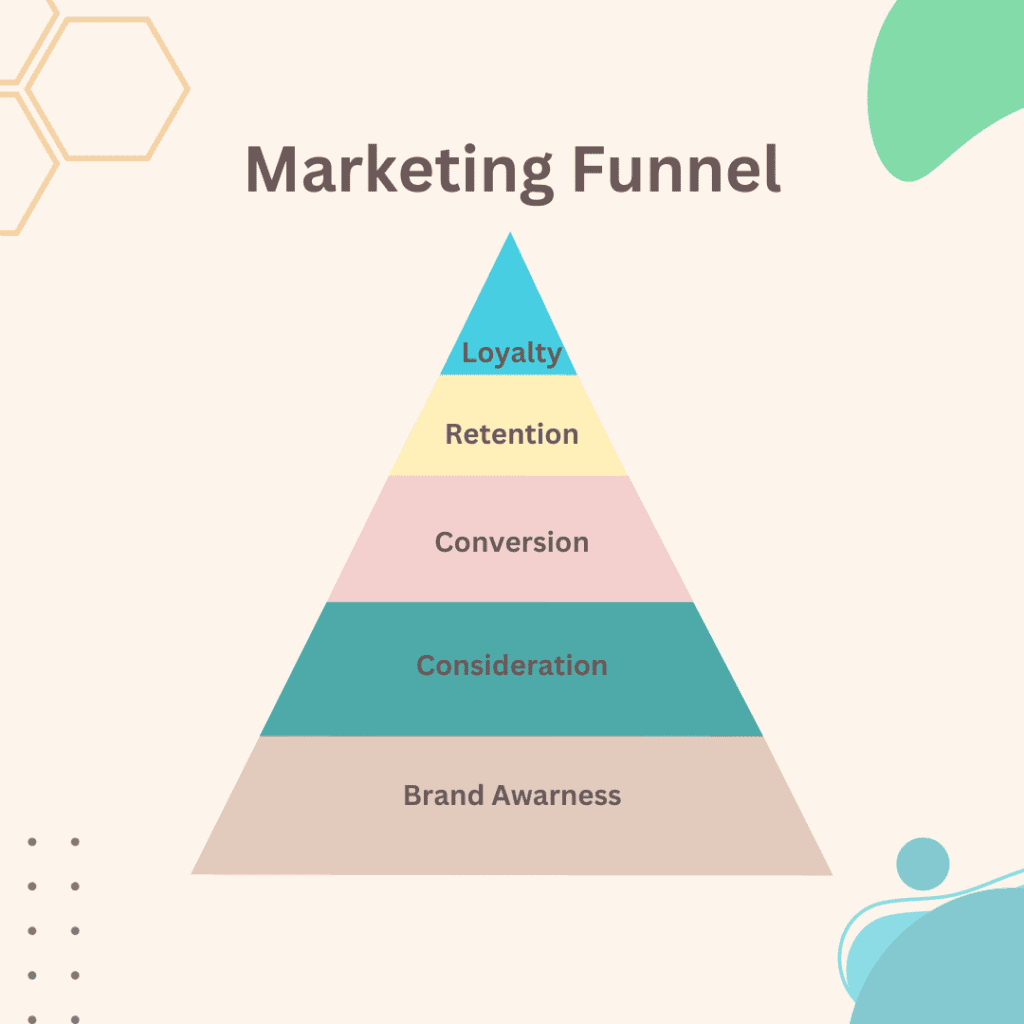
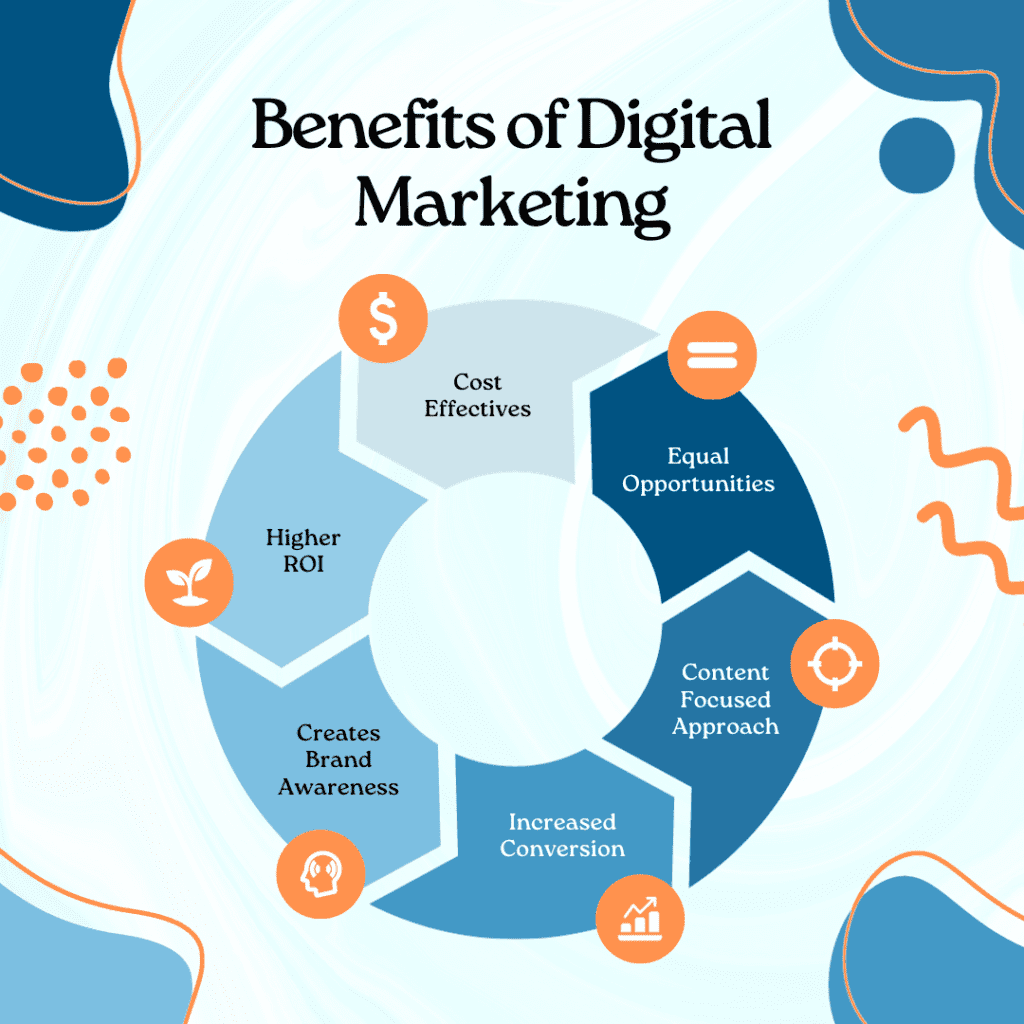

Why Digital Marketing?
The demand for digital marketing is on the rise and is expected to continue growing in the coming years. This trend is driven by several factors, including the expanding global internet user base, which has surpassed 5.19 billion, with over 850 million users in India alone. This presents a significant opportunity for businesses to tap into digital marketing to effectively reach their target audience.
In addition, the increasing popularity of social media platforms such as Facebook, Twitter, and Instagram has become crucial for businesses to connect with customers and promote products and services. Research from Cisco shows that businesses using social media marketing can generate an average of 38% more sales than those that do not.
The widespread use of smartphones and tablets to access the internet is further fueling the need for mobile marketing. As a result, businesses must optimize their marketing efforts for mobile devices to reach a broader audience.
Lastly, data-driven marketing has become essential for tracking campaign performance and making informed decisions about future strategies. This creates a demand for digital marketers skilled in data analysis and interpretation.
Job Responsibilities in Digital Marketing?
Digital marketing offers numerous career opportunities globally, including in India. Here are some of the most sought-after digital marketing jobs:
1. Digital Marketing Manager: oversees all aspects of a company’s digital marketing campaigns, including strategy, budget management, and performance tracking.
2. Content Marketer: creates and distributes engaging content in various forms such as blog posts, articles, infographics, and social media posts.
3. Search Engine Optimization (SEO) Specialist: helps websites rank higher in search engine results pages by optimizing them for relevant keywords and phrases.
4. Pay-Per-Click (PPC) Specialist: creates and manages pay-per-click advertising campaigns to drive traffic to businesses’ websites.
5. Social Media Marketer: utilizes social media platforms to connect with customers, promote products, and build brand awareness.
6. Email Marketer: sends promotional email messages to customers to generate leads and increase sales.
7. Digital Analytics Specialist: collects and analyzes data to track the performance of digital marketing campaigns.
8. User Experience (UX) Designer: creates user-friendly websites and applications to improve businesses’ conversion rates and customer satisfaction.
9. Growth Marketer: uses data and creativity to help businesses grow, developing new marketing strategies and optimizing existing campaigns.
Job titles and responsibilities may vary depending on the company and industry.
Upcoming trends in Digital Marketing?
Artificial intelligence: AI is widely recognized as a transformative technology that is already being used in digital marketing in a variety of ways, such as chatbots, personalized marketing, and predictive analytics. As we approach 2025, we can expect to see an even greater number of AI-powered marketing solutions, such as AI-generated content and AI-powered ad targeting, which will further enhance the effectiveness and efficiency of marketing campaigns.
Zero-click searches: Zero click searches are an increasingly popular feature of Google’s search engine, which provide instant results without the need to click on any search results. Google’s feature snippet, people also ask, knowledge panel, and search generative experience (SGE) are some of the ways in which zero-click searches are displayed, which can save users valuable time and effort.
Influencer marketing: It is a widely adopted type of marketing where brands partner with influencers to promote their products or services, particularly to younger audiences. This trend is expected to continue to grow in 2023, as more and more businesses seek to leverage the influence of social media personalities to reach new audiences and enhance brand awareness.
Social commerce: which involves buying and selling goods and services through social media platforms, is another rapidly expanding trend in digital marketing. With more and more people using social media to shop, businesses must adapt to this trend in order to effectively reach their target audiences and remain competitive.
Micro-influencers: who are social media users with between 1,000 and 100,000 followers, are increasingly being recognized for their authenticity, relatability, and ability to inspire trust in their followers. As a result, they have become a valuable asset for brands seeking to reach specific target audiences, particularly in niche markets or industries.

Digital Marketing Course Objectives
- Understanding Digital Marketing Fundamentals
- Mastering Key Digital Marketing Channels
- Creating Effective Digital Marketing Strategies
- Audience Segmentation and Targeting
- Content Creation and Optimization
- Data Analytics and Measurement
- Conversion Rate Optimization (CRO)
- Social Media Marketing
- Search Engine Optimization (SEO)
- Mobile Marketing
- Marketing Automation
Digital Marketing Course Completion Certificate
Key Components of a Digital Marketing Training and Certification Course:
Curriculum: The course curriculum covers a wide range of digital marketing topics, including but not limited to:
- Search Engine Optimization (SEO)
- Pay-Per-Click (PPC) Advertising
- Social Media Marketing
- Email Marketing
- Analytics and Data Interpretation
- Conversion Rate Optimization (CRO)
- Mobile Marketing
- E-commerce Strategies
- Influencer Marketing
- Digital Marketing Strategy and Planning
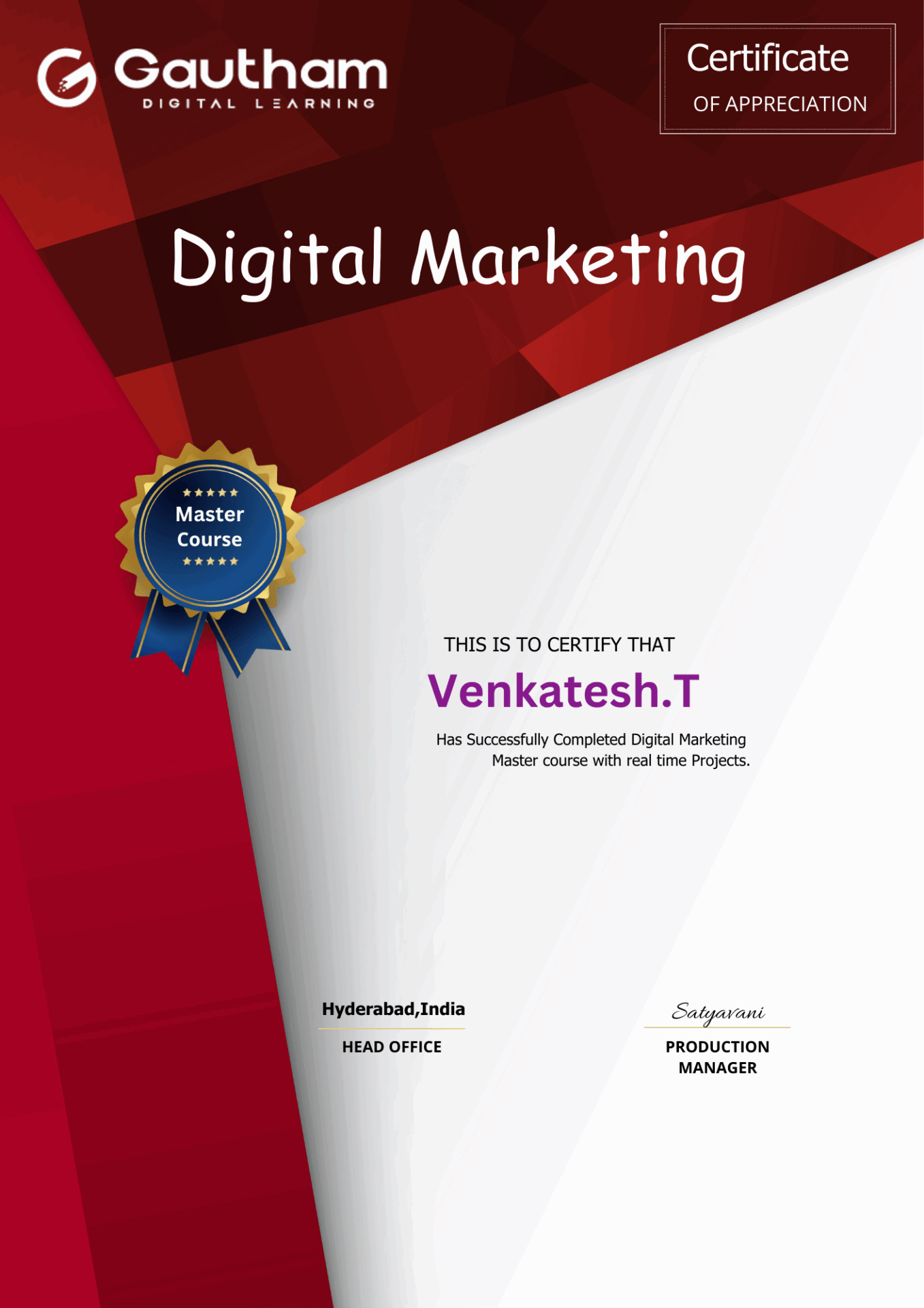
Testimonials
Check what our students say about us




Frequently Asked Questions
WordPress is a free and open-source content management system (CMS) that allows you to create a website or blog. It is the most popular CMS in the world, powering over 43% of all websites.
Elementor is a drag-and-drop page builder for WordPress. It is a freemium plugin that allows you to create beautiful and responsive pages without any coding knowledge. It is easy to use and has a wide range of features, making it a great option for creating beautiful and professional websites.
SEO means search engine optimization. Optimizing our website for natural or organic listing in Google SERP. It takes month for a well developed website to get top rank in Google SERP.
On-page SEO is the practice of optimizing individual web pages to improve their ranking in search engine results pages (SERPs). It includes optimizing the title tags, meta descriptions, content, images, internal links, and technical SEO of your pages.
All link building techniques comes under off page optimization.
Pay-per-click (PPC) is an online advertising model in which advertisers pay each time a user clicks on one of their ads.
Ad rank is based on quality, bid amount and ad extensions. Formula for ad rank is quality score* Bid amount+ad extensions.
Quality score is given by Google to the keywords from a range of 1 to 10. It is based on Ad relevancy, expected CTR and landing page experience.
CPC means cost per click it means that how much Google is charging for every click.
By improving quality score we can improve our ad rank even though by low CPC bid amounts.
SMO and SMM are two different strategies for using social media. SMO is about improving the visibility and ranking of your website and content on social media platforms, while SMM is about promoting your products or services on social media platforms. Both strategies are important for businesses that want to succeed on social media.
The Google Display Network (GDN) is a network of over 2 million websites, apps, and Google-owned properties (such as YouTube and Gmail). where your Google Ads can appear. It is a great way to reach your target audience and promote your brand.
Google AdSense is a program that allows publishers to earn money by displaying ads on their websites or apps. Google matches ads to your content and audience based on a number of factors, including the content of your website, the keywords you use, and the demographics of your visitors.
The main reason is because it work on intent based marketing. Our ad will trigger only when our keyword matches with the user search term. So that I will show only to the right audience.
In identity based marketing we target some audience and our ad only show to that audience. He may be or may not be interested in our ad. Google display ads, YouTube ads, Facebook ads, Twitter ads and all other social media ads works based on identity based marketing.
Audience targeting in Facebook ads is very important because it allows you to show your ads to the people who are most likely to be interested in them based on interest, behavior and demographics.
Remarketing, also known as retargeting, is a type of online advertising that allows you to show ads to people who have already visited your website or otherwise interacted with your brand.
- Understand your target audience.
- Choose the right advertising platform.
- Use audience targeting options.
- Create high-quality ads
- Test and optimize your campaigns.
When our ad is visible to the user it is counted as an impression.
Our Courses
A full-stack Python developer utilizes both the front-end and back-end components of web applications.
A Java full stack developer crafts both the interactive elements and the data processing engine of a web application using Java.
ServiceNow training equips you with the skills to manage IT service requests, incidents, and changes using the ServiceNow platform.
AWS DevOps integrates various aspects of software development and operations, aiming to shorten development life cycle.
Linux administration training teaches you how to install, configure, and maintain Linux operating system.
Salesforce training empowers you with the skills needed to become proficient in the world's leading CRM system.
Mulesoft provides software that connects applications, data, and devices that automate tasks and integrate various systems.




























